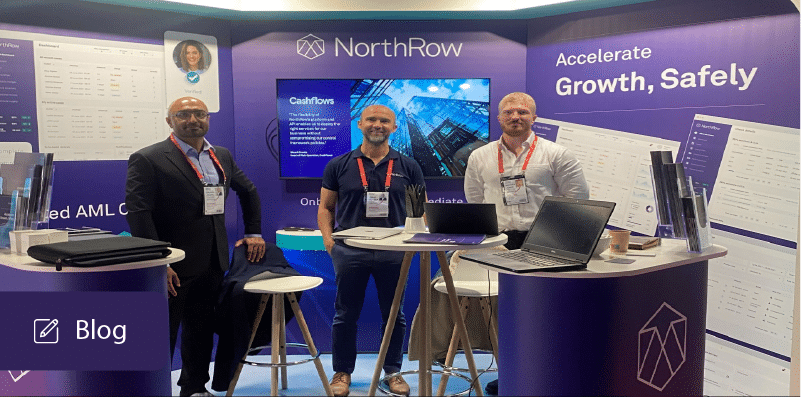In the blink of an eye, we’ve arrived at the final day of Money20/20 in glorious Amsterdam. We had such a great few days at the event and the NorthRow team were on hand to talk about all things AML and KYB/C software from our stand in Hall 7. The launch of our new WorkStation platform has gone off with a bang with the team delivering countless demonstrations of the system!
With some fantastic networking opportunities and the chance to catch up with the global finance community in person, we’ve had an amazing we’ve had an amazing, albeit intensive (!), three days in the Dutch capital.
So, for the final time, here are our handpicked selection of takeaways from the keynotes, panel discussions and seminars that we felt were most thought-provoking.
You can also catch up on our coverage and key takeaways from days one and two of Money20/20 in our previous articles here and here.
Making First Impressions Count
In today’s world of endless choice and demand for instant gratification, first impressions count. Customers demand a smooth, friction-free and efficient client onboarding experience and institutions seek to satisfy these needs in a way that reduces abandonment, lost revenue and poor user experience.
In a 30-minute lunchtime session on the stunning Plantarium stage, panellists explored where businesses can reduce friction as much as possible without compromising AML/KYC requirements.
The early interaction your customers have with your business can set the relationship up for success – or, indeed, failure. A clunky, difficult to navigate KYC process that is laborious to use will only make customers wary of what any future interactions may be like. The critical, yet simple task such as an ID check shouldn’t cause your customers unnecessary headaches with uploading documents, proving their liveness or verifying their identity.
Of course, we’re not biased, but our SaaS-based solution certainly meets these demands. It reduces friction and enables customers to prove their identity in seconds rather than laboriously providing manual documents for verification.
Throughout the session, the steps to get onboarding right were explored in detail. Crucially, businesses should be aiming to reach the point where an onboarding process is so impressive, that it builds a lifelong relationship with the customer.
At its core, KYC onboarding should improve customer experience and increase efficiency whilst delivering your AML obligations.
Power to the SME
A key talking point for this morning’s panellists at Money20/20 was how banks and fintechs can optimise businesses of the future with efficiencies today.
For most SMEs, being bogged down by admin and manual processes can be a success killer. When carried out manually, tasks such as bookkeeping, finance, data entry and client onboarding can feel like the most laborious of chores – and with little spare resource, can fall by the wayside, despite their critical importance.
When it comes to financial crime, bad actors aren’t picky about who they decide to commit transgressions against. Family accountancy firms or local solicitors are at risk as much as the industry giants.
In SMEs, digital transformation in KYC/B and AML is just as game-changing as upgrading your rolodex to a CRM, or your ledger to an accounting software.
As an example, manual KYB checks can involve compliance teams searching company records for days on end, thumbing through case files, chasing down documents from Ultimate Beneficial Owner (UBOs) registers, and verifying endless pages of company accounts and financial statements. This, which can ultimately stretch an already lean department’s resources, can also have a detrimental effect on time to revenue and cash flow.
Fortunately, software can help compliance teams to alleviate much of the heavy lifting associated with KYB/C and AML checks.
Just like a CRM will free up sales teams from manual record-keeping, or like accountancy software will liberate your finance team from endless calculations and spreadsheets; compliance software can free SMEs up to focus on more complex projects where their expertise is most needed and ensure they continue to scale their business in the safest way possible.








